Test anxiety is the leading cause of poor performance on any rigorous examination, so your physical and mental preparation is key to success.
Author: Allen R. Balay, DVM
Often, students or test candidates have "studied" for an examination, but haven't considered their mental and physical preparation, which is equally important to avoid "blanking out". There are specific strategies that can help you stay in control while taking any important examination; these strategies can contribute to an increase in correctly answered questions and improved test-taking performance.
In these pages, we will identify four important areas to consider in order to ensure success on any exam:
- Study techniques
- Mental preparation
- Physical preparation
- Test-taking techniques
Study Techniques
- Don't wait to study. Allow yourself over three months of preparation, and make a plan for your study time so you can stay on track.
- Write it down. Write out your study plan; you're more likely to follow something you have written down. Refer to it often for reinforcement and encouragement.
- Spread out the studying and DON'T CRAM. Frequent, short sessions will remain in long-term memory better than cram sessions.
- Get the information. Collect information about what to expect on the test, including the number of questions, types of questions, sections or topics to be tested, where the test center is located, and what to expect during the examination itself.
- Take practice exams. Practice exams help with mental preparation and identify areas that may require more targeted review.
- Review areas of weakness. It is easier to work on materials you know and like, but it is more important and fruitful to review areas in which you are deficient.
- Slow down when reading. Practice pacing yourself. The techniques of slowing down and reading carefully are key to success on any examination.
- Write down key points. Writing helps reinforce long-term memory. Test yourself on the points you have written down, and continue to re-write these points until you know them well. Repetition is the foundation of learning.
- Use note cards or highlighters. Use techniques that have previously helped you to succeed; this is a form of repetition.
- Work with a friend. Someone who is preparing for the same examination, or someone who is familiar with the profession and can ask you questions in the proper lingo, could be a good study partner.
- Group items into 7 or less. Our memory works best if we can group items that we need to memorize into groups of seven or less; this really helps for those key points that we all have to memorize.
- Maximize real-world experience. Jobs or internships provide great opportunities to reinforce learning - ask questions constantly! Keep a notebook to jot down new drugs, unfamiliar terms, etc. Then look the information up or review what you didn't remember or already know.
- Talk with co-workers. Ask their opinions about the exam - more information and points of view can be helpful.
Mental Preparation
Controlling test-taking anxiety is crucial to your success on any exam. Maintaining a positive attitude and ensuring proper handling of stress are critical for a favorable outcome. Self-confidence and focus are keys to your success!- Attitude, attitude, attitude:
- Anxiety is good as long as you control it and use it to your advantage - you will work best in "the zone".
- Don't become paralyzed by anxiety.
- Practice self-talk: "you can do this". This is a very important step.
- Avoid negative self-talk. Emphasize positives! Again, this is crucial.
- Remember that you know "this stuff" - have confidence in your education.
- Stay focused!
- During the test, it is okay to take a mini-break to build your confidence and reinforce your positive self-talk.
- Practice these test taking skills:
- Roll your shoulders
- Take several deep breaths
- Visualize success
- Close your eyes and focus on success and your "happy place"
- Be familiar with the examination format:
- What should you expect in the test environment?
- What are the number and types of questions you should expect?
- Will you have breaks?
- How much time is there for the exam?
- What should you bring to the test center?
- Can you go back to areas of the test that you decide to skip?
- Are there penalties for guessing?
- What types of test site security are used - will you be fingerprinted or videotaped?
- Practice visualization of your test-taking skills and visualize success.
Physical Preparation
Physical preparation is equally as important as all the other strategies for success. Knowing where you're going, what you're getting into, and prepping yourself physically will contribute to your overall success.- Your physical preparation
- Be in tip-top physical condition. Don't get rundown before the exam. Don't cram the night before the exam.
- Keep up with your sleep, especially the night before the exam; you need to be sharp and in control.
- Eat comfort foods for several days prior to the exam and especially the night before - avoid spicy foods.
- Eat a good breakfast the morning of the exam - this is very important!
- Go for a walk or do your favorite exercise for several days before the exam. Good physical condition is as important as mental preparation; exercise calms the body.
- Layer your clothing for the day of the exam. If the room is too warm, you can shed a layer; if the room is too cold, you can put on a layer. Your comfort helps with your attention and, therefore, your success.
- Physical preparation for the exam
- Know where you are going. Consider a trial run to the site to verify location and how long it takes to get there - is the parking adequate?
- Lay out your clothing the night before the exam.
- Lay out what you need to bring to the exam the night before (i.e. identification, etc.).
- Arrive early and be prepared with appropriate identification; most exams require picture identification.
- Can you bring a bottle of water or other beverages?
- Do you need to bring pencils or other materials?
- The site preparation
- Are the chairs comfortable?
- Can you take a bathroom break?
- Are there lockers to store the personal items you are not allowed to bring into the exam, or do you need to store them in your vehicle?
- What is the site layout?
- Will you be fingerprinted or videotaped?
- Will you get your scores or preliminary scores at the end of the exam?
Test-taking Strategies
- SLOW DOWN AND READ THE QUESTIONS CAREFULLY. This is the most important strategy!
- Realize that you will NOT KNOW all of the answers and you may not even recognize some questions. This is normal and not at all unexpected. Nobody is going to know all the answers and no one is going to get 100% of the credit on difficult credentialing examinations. Realize this and embrace it - don't get upset or anxious when you see these unknown questions.
- Pace yourself - manage your time without fretting about the time. If you need to, set shorter time goals (e.g. If you have 4 hours for a 200 question exam, you should be finishing a minimum of 50 questions per hour).
- Use a process of elimination on questions.Try to remember or identify the correct answer to a question BEFORE looking at the choices. If allowed, you may want to use a piece of scratch paper to cover answers without looking at the choices. This can also be done on a computer screen.
- Another strategy that has worked for students and test candidates is to plan to go through the exam three times. The first time you answer the questions that you know that you know. The second time, answer the questions that you think you can figure out, or for which you can likely eliminate incorrect answers so that you arrive at the correct answer. Lastly, the final read-through is to make your best educated guesses at the questions that you don't know. The advantage to this technique is that you likely may see some other questions that jog your memory about answers that don't come to mind when you first go through the exam. It takes a second or often a third reading for the mind to remember that you have already seen something similar in another related question.
- If you get bogged down, find an easy question that boosts your confidence. Repeat positive self-confidence statements to yourself as you go, especially when you get bogged down.
- Remember stress management:
- Take a deep breath when you feel overwhelmed or too anxious.
- Roll your shoulders and shake your hands - these techniques really do dispel stress.
- Stay focused, and if you can't, give yourself a break for a few minutes.
- Take a "time-out" break. Ask for permission to go to the restroom even if you don't need the restroom. The break is good, and so is the walking.
- Repeat again those self-confidence messages.
- Again, take the time to read the questions carefully!





